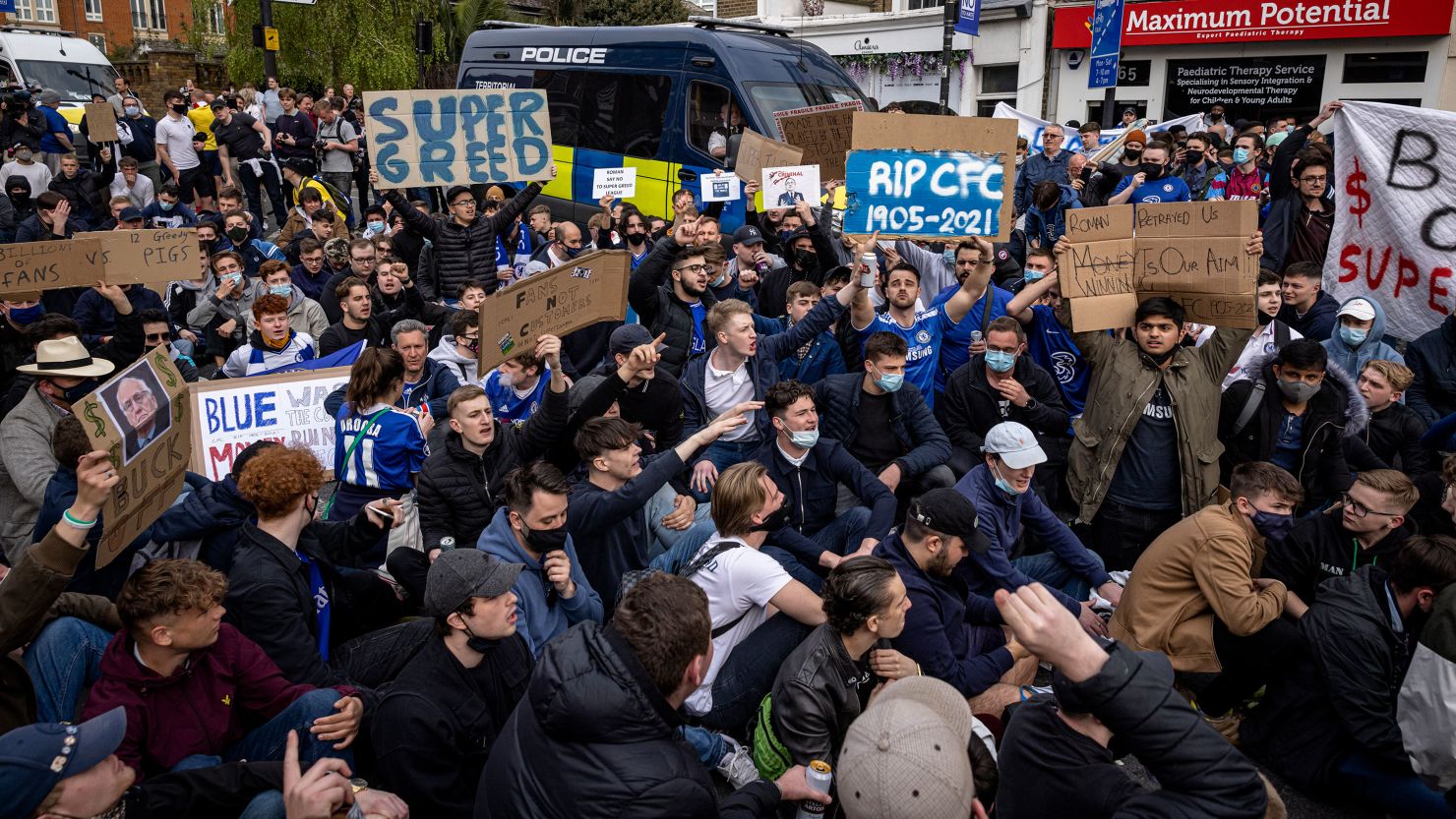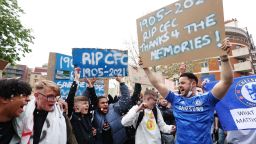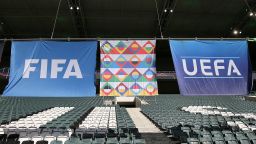Betrayal has formed part of European politics since polities started forming – just ask Julius Caesar, who asked “Et tu Brute?” as his friend stabbed him for the good of the Roman Republic.
Fast forward to April 2021 and the machinations behind the proposed European Super League (ESL) that would have turned the sport on its head, effectively discarding its flagship competition – the Champions League – are akin to a ‘House of Cards’ plot.
Driven by 12 of Europe’s biggest clubs, the ESL intended to break away from European soccer governing body’s UEFA to create their own competition containing 20 teams – the founding members as well as three other permanent unnamed clubs and five others who would qualify every year.
In the Apple TV+ documentary “Super League: The War for Football,” the decisions that led to the controversial proposal are presented as a “political thriller … 96 sleepless hours over the course of four days,” its Emmy-award winning director Jeff Zimbalist tells CNN Sports.
Featuring almost all the key decision makers, the documentary depicts fans who felt betrayed by their clubs, soccer betraying its principles – or its future – and, most stingingly of all, “betrayal” between friends.
The friendship between UEFA President Aleksander Čeferin and Andrea Agnelli, then Juventus chairman and European Club Association chairman, forms the main narrative and emotional thread of the documentary.
Initially so close that Agnelli named Čeferin his daughter’s godfather as they worked together on reforming European football, their friendship unraveled as it became clear that Agnelli had helped formulate the rival ESL and was “sort of the general of the opposing army,” Zimbalist says.
“The dynamics at play here aren’t that different from the emotional and relational dynamics that we all have in our lives every day,” he adds. “The complexity of who to trust. And how deep the wound of betrayal runs.”
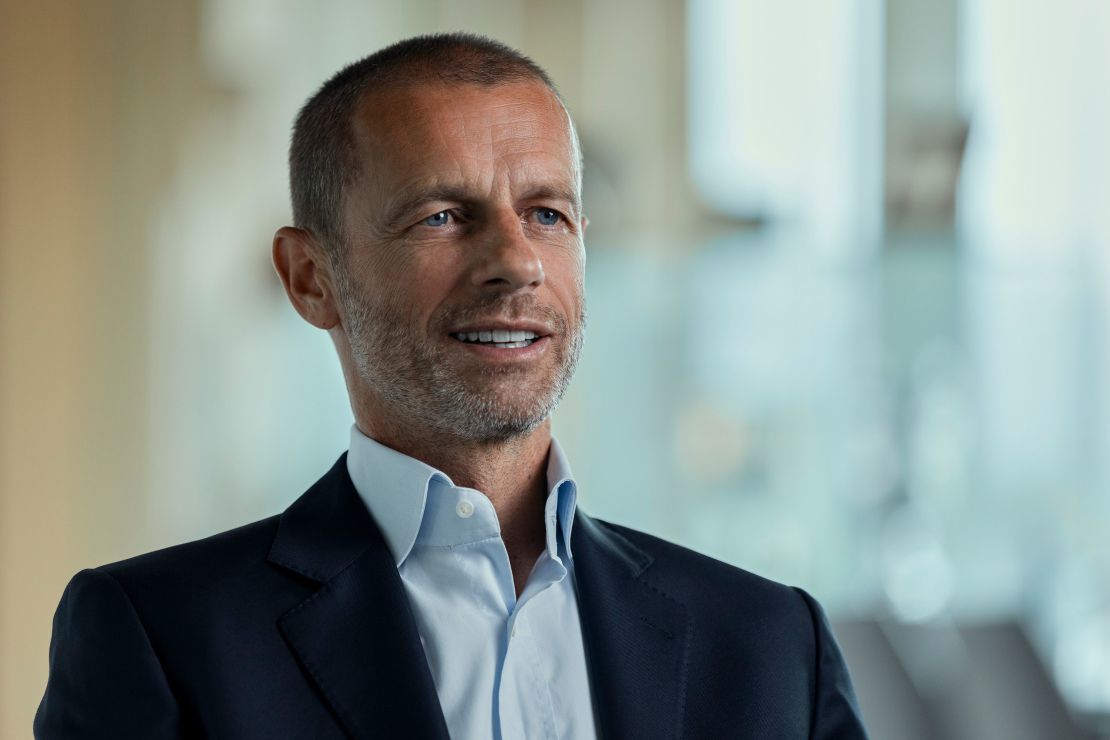
Characters – normally seen as names in a press release or faces giving television interviews – are fleshed out and offer tangible reasons for their actions, delving into their backstories.
Čeferin speaks about the moral dilemmas he faced as a lawyer defending traffickers and murderers; Agnelli about his brother’s death; Real Madrid President Florentino Pérez’s about his love of the club; and Paris Saint-Germain President Nasser Al-Khelaifi’s about his tennis playing days.
“This is not a bunch of robotic, mechanical strategists sitting around a war room,” Zimbalist says. “These are human beings, flesh and blood, with three dimensions who are feeling all sorts of emotion during this time.
“We were watching what’s usually taking place behind closed doors unfolding in public, this battle that revealed to us the machinations of power and how they clash up against each other.”
‘Is it social democracy or is it capitalist utopia?’
But the reverberations of the proposed ESL were felt beyond personal relationships, beyond even soccer, as the project entangled Russian oligarchs, American hedge fund billionaires and Middle Eastern sheikhs – all of whom owned the clubs involved.
Even Prince William intervened, expressing his opposition to the idea, while then British Prime Minister Boris Johnson threatened to “drop a legislative bomb” to prevent the breakaway league forming.
Public opinion became another battleground, with UEFA decisively winning the PR war as the ESL plans were dismantled by fans, governments and other clubs within 48 hours of becoming public.
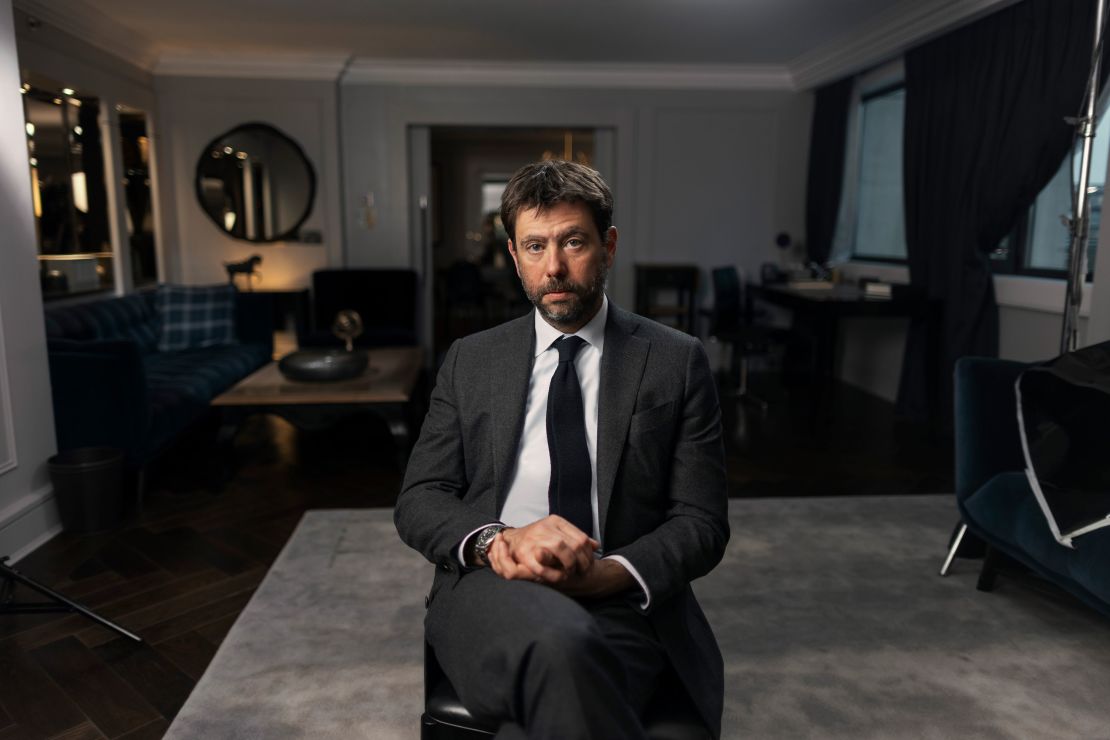
The documentary is balanced, offering the ESL architects’ reasoning and plans in extensive interviews, assembling almost the entire cast of characters to face off once more in the court of public opinion.
“That was how we presented it to them,” Zimbalist says.
“We’re going to hopefully have audiences in a tug of war where they, for 15 minutes at a time, are rooting for UEFA and the fans and the next 15 minutes they’re rooting for the Super League because they can identify with the personal experiences of the architects on either side and they understand the arguments.”
But Zimbalist was wary of casting the ESL as a battle between only two sides, constantly reminding himself and his team of the other groups.
“You can very easily just look at UEFA vs. the architects of the Super League,” he says. “But then you’re leaving out, in some ways, the most important voice, which is the fan voice.”
The entire documentary opens with the fans, lingering on the emotion provoked by football, and detailing the sport’s most fairytale-like stories such as unfancied Leicester City winning the Premier League in 2016.
So much of football’s magic, almost every commentator and fan interviewed for the documentary says, comes from the drama of promotion and relegation which the ESL would have undermined.
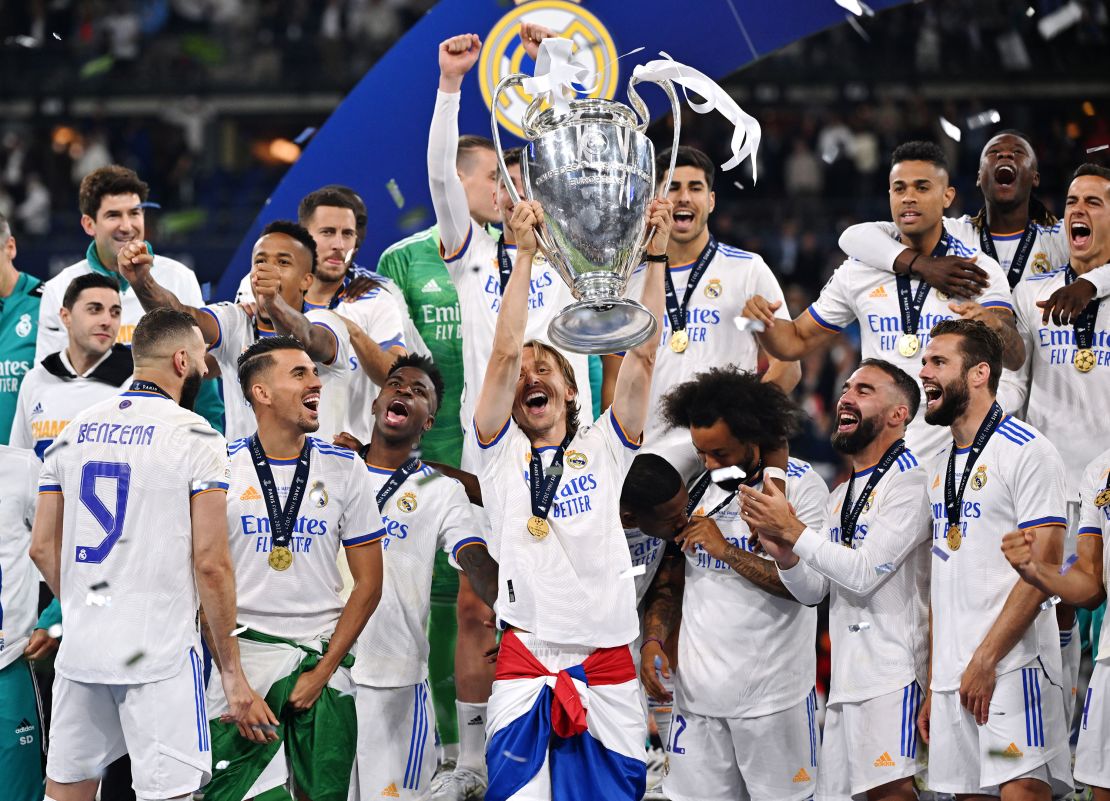
It epitomizes the ideal that a club can rise from the lowest to the highest ranks of the sport; an idea that has been battered recently by the consolidation of wealth among the top few clubs, owned by mega-rich owners and able to simply buy the best players.
“This identity crisis in the sport – is it social democracy or is it capitalist utopia?” Zimbalist says. “If you look at the Super League story, capitalism may have its hands around the throat of the sport, but it hasn’t fully appropriated the sport either because the fans came out victorious.”
European governing body UEFA too emerged victorious, vowing to stop the “cynical project,” as seemingly, did football’s world governing body FIFA which threatened to expel clubs from international competitions.
The documentary, however, details FIFA’s more ambiguous position, its own financial competition with UEFA and its talks engaging with the nascent league, the documentary says.
‘The war for football rages on’
Still the conditions that led to the proposed ESL continue to plague European football as its organizers unveiled a reformed competition with “60 to 80 teams” earlier this month.
Zimbalist’s documentary delves deep into these themes, explaining the origins of the wage inflation first driven by “old money” clubs such as Real Madrid and Manchester United which are now in turn outspent by “new money” club such as PSG and Manchester City.
“We wanted to use this saga as a lens through which to understand the inner workings of a $40 billion a year industry,” he says.
“And ask big questions about can culture be owned? And how do you govern culture?”

For Barcelona and Juventus, their financial situations have only become more desperate during the last two years.
Juventus was docked 15 points earlier this month following an investigation into the Turin-based team’s representation of their player sales between 2018 and 2020, while the entire board of directors – including Agnelli – resigned in November amid an investigation from the public prosecutor’s office in Turin.
Barcelona’s already precarious financial situation has worsened following two consecutive group stage exits in the Champions League, and its president said in January that the ESL will become “a reality in 2025.”
But Arsenal CEO Vinai Venkatesham told CNN’s Richard Quest last month that for them, “the Super League is in the past.”
“It was something that we apologized for and … going forward, it’s not something that we’re interested in.”
Meanwhile court cases arbitrating the league’s fallout rumble on.
An opinion issued by the European Court of Justice (ECJ) ruled in December that the measures FIFA and UEFA took to block the breakaway league were in line with European Union competition laws, a blow to the continuing proponents of the ESL.
The ECJ will issue its final judgement later this year.
The ESL in the incarnation that it was originally proposed seems unlikely to become a reality but the “ideas behind the Super League, the vision that it proposes, are likely to take other forms and to evolve,” Zimbalist says.
“Maybe the battle of this version of the Super League and is perhaps close to over. But the war for football rages on.”
